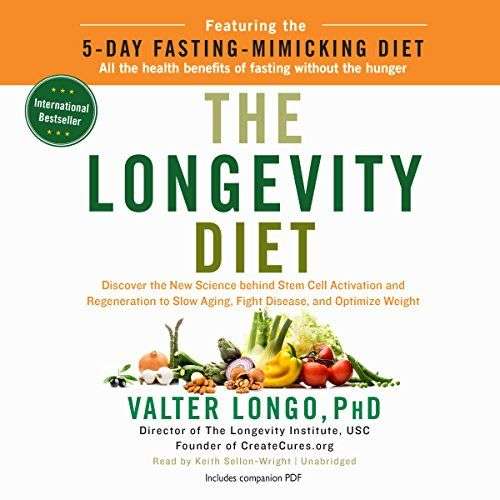Home

EatKnowingly.com provides nutrition information to assist you in making informed decisions on your diets.
Disclaimer
Content provided by EatKnowingly.com is purely for informational purposes and is not a substitute for the medical or dietary advice of your doctor or dietician.
General dietary recommendations are healthy for the majority of the people but may have inverse consequences for some. Please seek the advice of your doctor and dietician before making any changes in your diet.
There are plenty of food options available nowadays. Fresh products, semi-cooked, frozen or dried form available in the market, take away choices from a variety of cuisines, exotic fruits, vegetables, herbs that was not known a decade ago is accessible to many of us now. Another fact is we are consuming more and more processed food. The food industry is promoting this by making convenience products, by adding addictive ingredients, and creating massive advertisement campaigns.
There are also major consequences of the changing diet habits of society. There are more people now with high cholesterol, high blood pressure, and other cardiovascular diseases, diabetes, dementia, cancer, etc. compared to a few decades back and because of this, there are many more people on prescribed drugs.
Metabolic Syndrome and Insulin Resistance
Metabolic syndrome is a group of medical conditions like
- high blood pressure - 130/80 or higher
- high blood sugar - fasting glucose level over 100 mg/dL (5.5 mmol/L)
- high triglycerides - fasting triglyceride level over 150 mg/dL (1.7 mmol/L)
- low HDL cholesterol - under 40 mg/dL (1.0 mmol/L) in men and 50 mg/dL (1.3 mmol/L) in women
- abdominal obesity - waistline over 102 cm (40 inches) in men and 89 cm (35 inches) in women

Insulin is a hormone that allows glucose to enter cells which also reduces blood glucose (blood sugar) and is released by the pancreas in response to the food components consumed in the diet.
In case of insulin resistance, the amount of insulin needed for glucose transport and blood glucose levels increases over time as the cells in your muscles, fat, and liver doesn’t respond well to insulin and the pancreas needs to make more insulin to compensate this. Over time, metabolic syndrome conditions start to appear. Insulin resistance, prediabetes, type 2 diabetes, and metabolic syndrome are closely related to each other.
| Insulin Resistance |
| Fasting blood glucose range: 80 to 100 with a high insulin level |
| Cells stop responding to insulin. Insulin levels are sufficiently high, but blood glucose level is within the normal range.
The pancreas is still healthy enough but getting overloaded. |
| ⬇ ⬇ ⬇ |
| Prediabetes |
| Fasting blood glucose range: 101 to 125 |
| The pancreas can’t keep up anymore. Blood glucose level is higher than normal but not high enough to be considered Type 2 Diabetes yet.
Without lifestyle changes, may cause Type 2 Diabetes in the future. |
| ⬇ ⬇ ⬇ |
| Type 2 Diabetes |
| Fasting blood glucose range: 126 and above |
| The pancreas is unable to produce enough insulin to keep the blood glucose level below the danger zone.
Uncontrolled Type 2 Diabetes may lead to serious health complications. |
But we can regain our health back
Recently more and more people are paying attention to their diets and trying to prevent or overcome their diseases through carefully planned dietary intervention strategies. Luckily, there are many types of research and discoveries taking place to guide people.
Autophagy
Autophagy means self-eating. It’s a detox process that the body performs to clean out damaged cells and regenerate new ones. In 2016, Japanese scientist Yoshinori Ohsumi won the Nobel Prize in Physiology or Medicine for his discoveries into the mechanisms of autophagy. The autophagy concept emerged during the 1960s when researchers first observed that the cell could destroy its own contents. Yoshinori Ohsumi used baker’s yeast to identify genes essential for autophagy. He then went on to clarify the underlying mechanisms for autophagy in yeast and showed that a similar sophisticated mechanism is used by human cells.
During starvation, cells break down proteins and other cell components and use them for energy. During autophagy, cells also destroy viruses and bacteria and get rid of damaged structures. There are lots of research that connects fasting with improved blood sugar control, reduced inflammation, weight loss, and improved brain function. Many experts agree that the autophagy process initiates after 18 hours of fasting whereas the benefits increase with prolonged fasting.
It is important to note that fasting for extended periods should always be done under medical supervision and only if approved by your doctor.
Fasting Mimicking Diet
A prolonged fasting period (between 4-7 days) without food is quite challenging for many people. Prof Valter Longo and his team developed a system called Fasting Mimicking Diet which replicates the benefits of prolonged fasting while still providing the body with limited nutrition to ease up the process. More
More
Resources
There are many highly respected doctors guiding people in the right direction using online channels and / or published material. This is a non-exhaustive list of doctors influencing many people. There are many more doctors with similar or different approaches.
| • Dr. Eric Berg DC |

|
| • Dr. Sten Ekberg |

|
| • Dr. Sarah Hallberg |

|
| • Dr Jason Fung |

|
| • Dr. Aseem Malhotra |

|
| • Prof. Valter Longo | Web site |
For more
Visit- Nutrition To understand the role of nutrients for making better food choices.
- Daily Reference Intakes To calculate how much nutrient you need based on your age, weight, gender, physical activity level, etc.
- Nutrition Facts To calculate and compare the nutrition facts for the foods you choose with the specified amounts.
